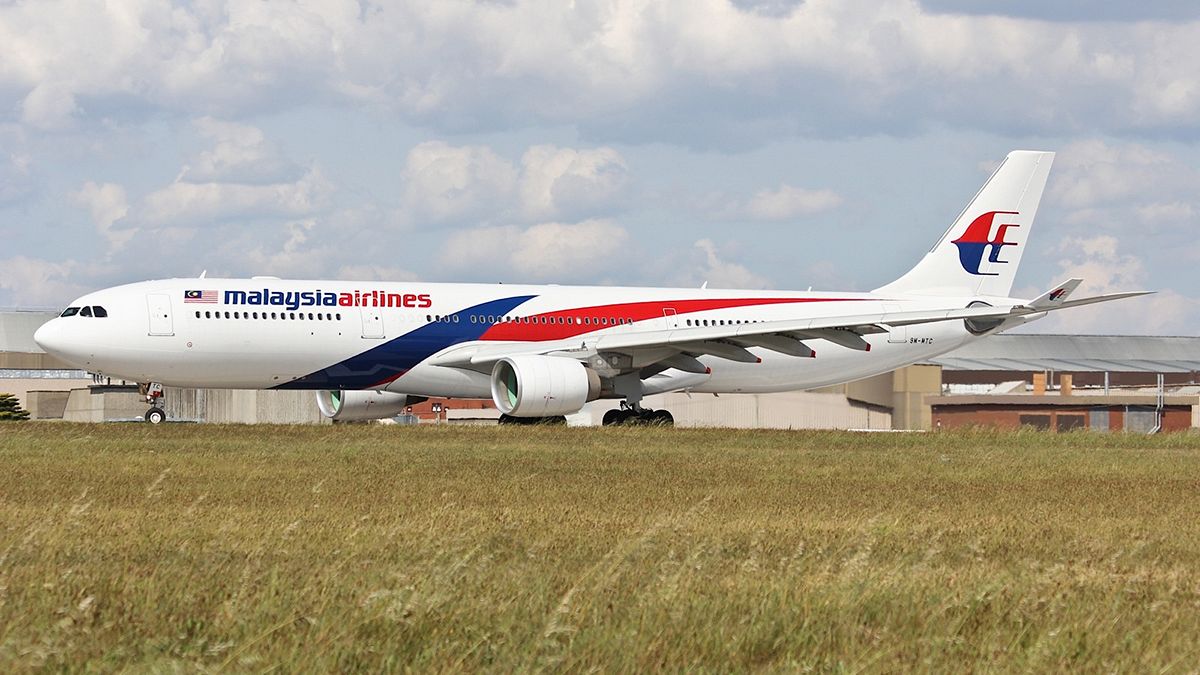Sophie Desjardin, euronews: “On Monday, after 15 days of unbearable suspense for the families of those on board the missing Malaysian Airways Boeing, the prime minister announced it had gone down in the Indian Ocean and that there were no survivors. We’re joined by Gérard Feldzer. You saw this coming a few days ago on our channel. The hypothesis checks out but there are still lots of questions. To start: debris has been spotted; it hasn’t yet been identified; how can we be sure it is from the plane?”
Gérard Feldzer, aeronautics expert and former pilot: “We’re not absolutely sure of anything — other than the plane disappeared. We don’t even know where. To tell this story, we have to pull at a thread, reversing in time. We don’t have the beginning of the thread, which is extremely distressing. What happened during the five hours? If it really did fly for five hours. We might think of an accident, which dispersed the plane in an explosion. In that case, we would have found the wreckage there. Well, we didn’t find it. Then we said, ‘yes, but it headed west, we saw that on military radar’. What to do? Was there a hijacking? In that case, what was the plane doing in the most barren place in the world. We don’t know. No claim of responsibility were made, and that doesn’t add up either. Was there a major breakdown that the pilot had to deal with and so he couldn’t sound the alarm? Fire, for example. That’s been seen. It might be possible, but for five hours? That’s really quite incredible.”
euronews: “What theory do you find the most probable?”
Feldzer: “I’m most convinced that there was a major incident and an attempt to control the plane, whether it was fire or an explosion. Though I doubt it could have flown on for so long. I don’t find one theory more worthy than another. Usually, I do, but here, really, I’m at a loss, like so many other investigators.”
euronews: “We’re now talking about the plane having been put on automatic pilot. Is it possible that the pilot, copilot and passengers lost consciousness at the same time?”
Feldzer: “It’s been seen before: a slow depressurisation on a Cypriot airplane. It had a door that wasn’t airtight, and there was a loss of oxygen and both of the pilots passed out. No one was manning the controls; it was just the autopilot. So, yes, the improbable often happens, even that.”
euronews: “Considerable resources have been poured in to try to recover the black boxes, to explain the mystery. Do you think there’s a chance of finding them?”
Feldzer: “It’s very difficult to find them because to do that the perimeter has to be narrowed down. Here, we’re in an area four times that of France. So, it’s extremely difficult. The listening devices to detect the black boxes have to, practically, pass right over them, and they’ll stop emitting in 15 days. So, how? We mustn’t give up hope, even if there are some cynics who say it would suit everyone if we didn’t know too much.”
euronews: “You said a few days ago that military strategies are involved in holding back information. It’s true that military radar did find the plane, apparently, and detected its worrying behaviour. How is it possible that Malaysia’s air force didn’t intervene?”
Feldzer: “The question will be raised again about the effectiveness of strategic military air defence. When a plane trajectory doesn’t correspond to the known plan, military people call that an intruder and try to identify it. Once they’ve determined its position, they send fighter pilots and other planes after it. Here, they didn’t do anything. There could easily have been an attempted mini 9/11, or a major one, I don’t know. In any case, there are certainly weaknesses there, also.”
